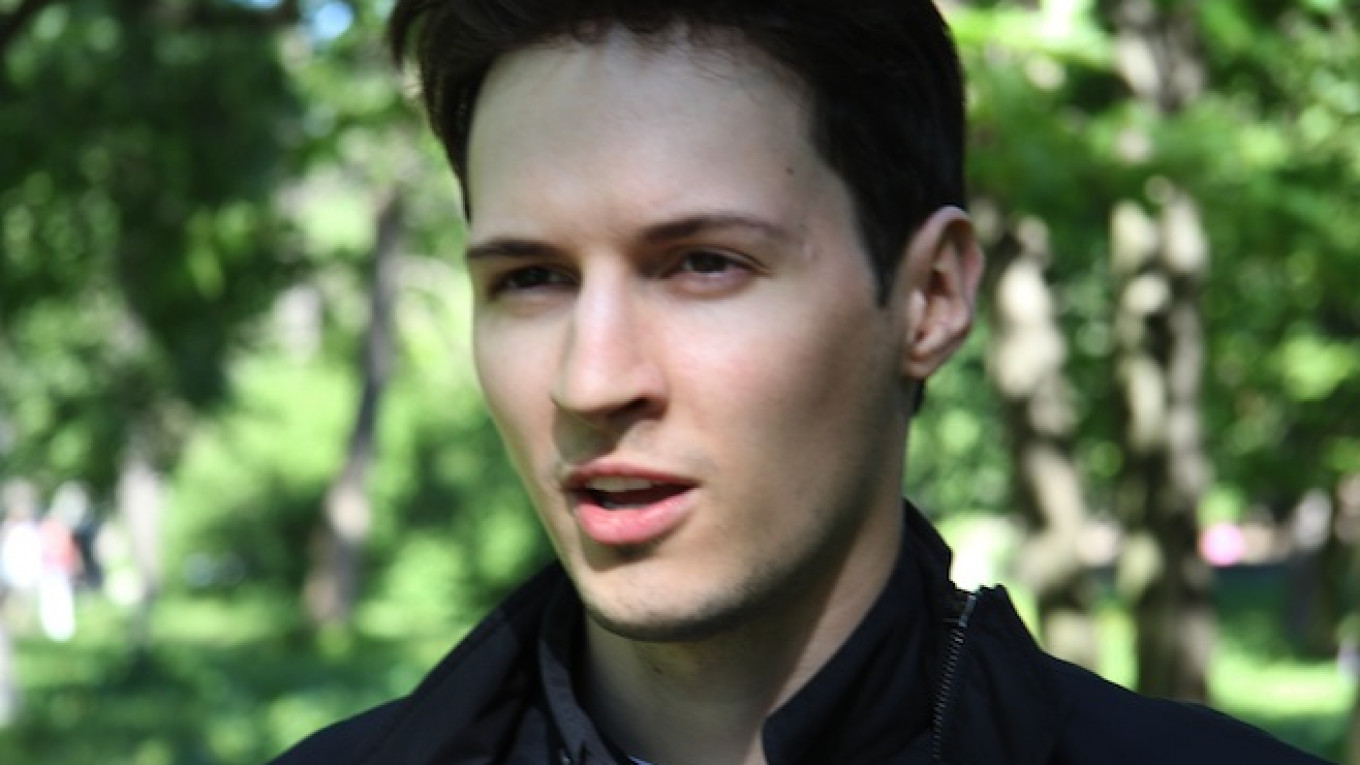Pavel Durov, the founder of Russia’s largest social networking website, fled the country on Tuesday, a day after he said he was forced out as the company’s CEO for refusing to share users’ personal data with Russian law enforcement agencies.
Durov, who created Vkontakte seven years ago, first announced his intention to leave the company on April 1 but withdrew his resignation letter two days later. On Monday, he announced that he had been fired and that the social network would now fall under “full control” of Kremlin-linked Rosneft CEO Igor Sechin and Vkontakte billionaire shareholder Alisher Usmanov.
The move to oust Durov is widely seen as part of a wider campaign by the Kremlin to tighten its grip on the Internet, and observers said the authorities aimed to “cleanse” the management of Russian Internet companies in the hopes of gaining control of their content.
Last week, Durov said in an interview with the New Times that the Federal Security Service had turned up the pressure on Vkontakte employees dramatically in recent months, demanding that Durov release personal information about Euromaidan activists. He said the Prosecutor General's Office ordered him to shut down a group on the website dedicated to anti-corruption activist Alexei Navalny, though he refused to do so.
“I am out of Russia and have no plans to go back,” Durov said Tuesday in an interview with Techcrunch, a news website focused on technology. He said he intended to launch a mobile social network outside Russia.
“Unfortunately, the country is incompatible with Internet business at the moment,” he said, adding that Russian authorities had targeted him after he publicly refused to cooperate with them.
United Capital Partners, a private company registered in Moscow that owns 48 percent of Vkontakte, disputed Durov's statements on Tuesday, saying he had been seeking to “politicize the situation” because there were “serious legal claims” against him and he was suspected of embezzlement.
The company's statement also said his resignation was not an “accomplished fact” and that the decision had yet to be discussed by the board of directors. The company's executive director, however, said the decision was final.
Nevertheless, the news has been met with alarm by many who believe it is connected with recent events in neighboring Ukraine.
Durov himself said the events were directly related.
Over the last four months, he said, he received hundreds of requests to close various political groups on Vkontakte, and a court issued a ruling obligating the social network to provide access to the personal messages of Ukraine's opposition activists.
“To give the personal details of Ukrainians to the Russian authorities would not only be against the law, but also a betrayal of those millions of people in Ukraine who trusted us,” Durov said.
Durov's allegations call into doubt statements made by President Vladimir Putin last week.
In response to a question from U.S. intelligence leaker Edward Snowden during a call-in show, Putin said that online surveillance and the activities of Russian intelligence agencies were “strictly regulated by law.”
Last month, the head of FSB's Counterterrorism Directorate, Alexander Malevanny, implied that Western intelligence had undertaken measures to influence the political situation in Russia and that Russia was not only going to resist their activity but also take reciprocal measures.
Andrei Soldatov, a prominent security services expert who runs the think tank Agentura.ru, said the situation with Vkontakte was likely related to such perceived interference by Western intelligence.
“What happened with Vkontakte is a responsive measure,” Soldatov told The Moscow Times.
Pavel Salin, director of the Center for Political Studies at the Financial University under the Government of the Russian Federation, said the government may have also seen Vkontakte as a threat to social stability.
“The Arab Spring showed that social networks were those platforms that consolidate people for political actions. Vkontakte is potentially a network that would be able to play such a role in Russia, since most of its users are liberal-minded,” Salin said.
Russian social networks on Tuesday were flooded with people complaining that Durov had been forced to leave because of FSB pressure. Some Vkontakte users even created a group in support of Durov, demanding that he be returned to the position of CEO.
“I am seriously thinking of deleting my profile from Vkontakte after Durov's resignation, letting Usmanov and Sechin hang out there,” Twitter user Fyodor Krashennikov wrote.
In St. Petersburg, activists staged a protest in front of Vkontakte's offices on Nevsky Prospekt and placed a sticker on the building that said: “Vkontakte died in a fight with political censorship,” Rosbalt reported.
Also see:
Vkontakte Founder Pavel Durov Learns He's Been Fired Through Media
Contact the author at [email protected]
A Message from The Moscow Times:
Dear readers,
We are facing unprecedented challenges. Russia's Prosecutor General's Office has designated The Moscow Times as an "undesirable" organization, criminalizing our work and putting our staff at risk of prosecution. This follows our earlier unjust labeling as a "foreign agent."
These actions are direct attempts to silence independent journalism in Russia. The authorities claim our work "discredits the decisions of the Russian leadership." We see things differently: we strive to provide accurate, unbiased reporting on Russia.
We, the journalists of The Moscow Times, refuse to be silenced. But to continue our work, we need your help.
Your support, no matter how small, makes a world of difference. If you can, please support us monthly starting from just $2. It's quick to set up, and every contribution makes a significant impact.
By supporting The Moscow Times, you're defending open, independent journalism in the face of repression. Thank you for standing with us.
Remind me later.


